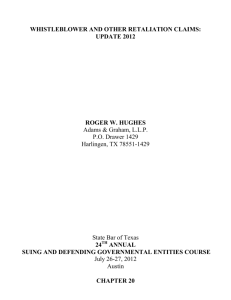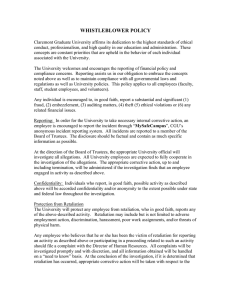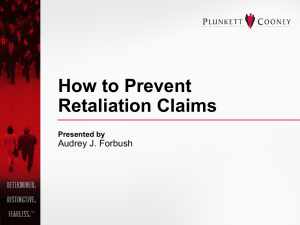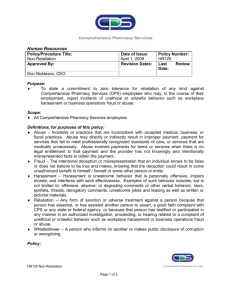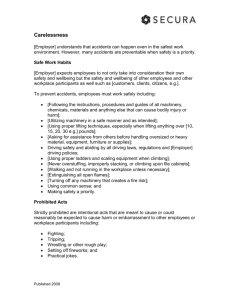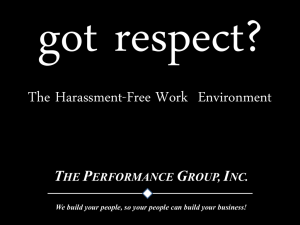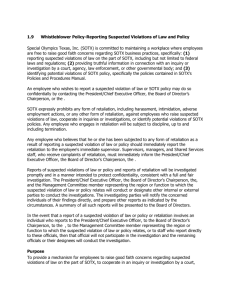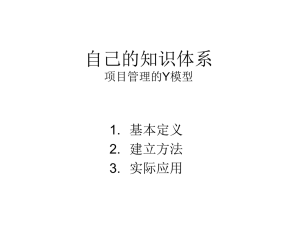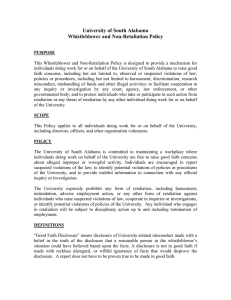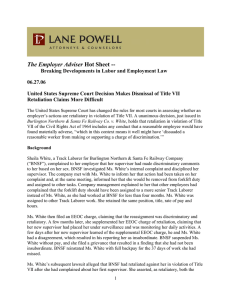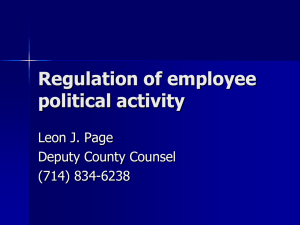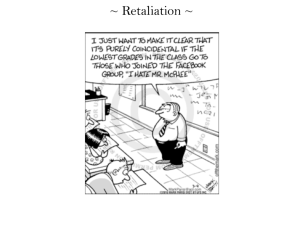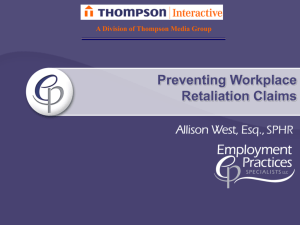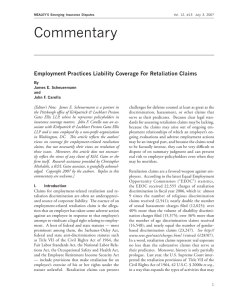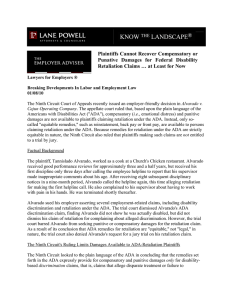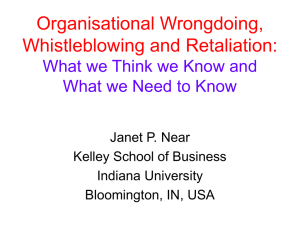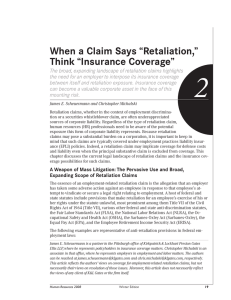Some Best Practices For Ensuring Non
advertisement
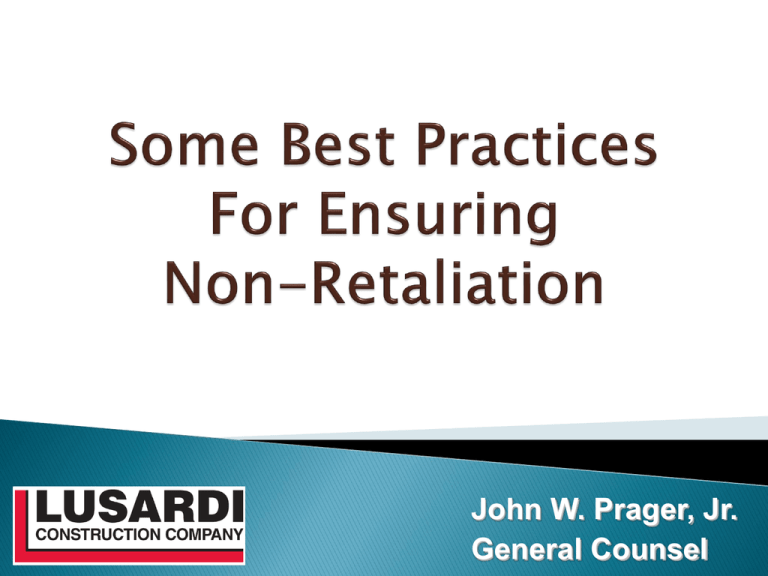
John W. Prager, Jr. General Counsel 1. Prepare a Non-Retaliation Policy for the E & C Program 2. Prominently place the policy in company’s Code of Conduct and Hotline Info 3. Publicize the policy in spots such as the company’s intranet and newsletters 4. Post the policy on employee and/or company bulletin boards a. in company office locations b. in jobsite trailers 1. Distribute the policy to all employees at time of hire or placement 2. Discuss the policy and the company’s commitment to it with the employees a. often and openly b. during orientation, and/or safety meetings 1. Take action required quickly when retaliation is provable 2. Ensure workforce understands when/why Company takes such action 3. Monitor alleged victim’s circumstances 1. Note the specific provisions 2. Note infractions and examples that have occurred 3. Identify legal liabilities – personal and company – which can be the result 4. Identify effect on profitability from atmosphere free of retaliation 1. Employees must trust that management believes that retaliation is wrong 2. Discuss the specifics of company’s policy on non-retaliation with employees and with union representatives (where applicable) 3. Stress that supervisory and management retaliation against reporter of misconduct is the wrong thing to do 4. Stress that co-worker vs employee retaliation is likewise wrong 5. Ensure that Board and CEO clearly communicate their expectations of non-retaliation to employees and supervisors 1. Selection for lay-off and/or failure to recall from layoff 2. Non-selection for OT and/or lucrative job assignments or benefits 3. Negative performance evaluation remarks 4. Demotion, lack of promotion, and unfounded discipline / discharge 5. Isolating employee and other adverse changes to work environment 6. Social event shunning by co-workers or management 7. Harassment and/or bullying by co-workers or management 1. Include the methods and people within the company to receive reports 2. List of public agencies which can receive reports and act on them 3. Note that reporting, investigations and outcomes will be kept “confidential to the extent practicable” 1. Making working conditions intolerable can be actionable 2. Basic test – a reasonable person would quit rather than endure 3. Court gets to sink teeth into and opine as to the legitimacy of supervisory actions 4. Concerns over insurability of intentional conduct

